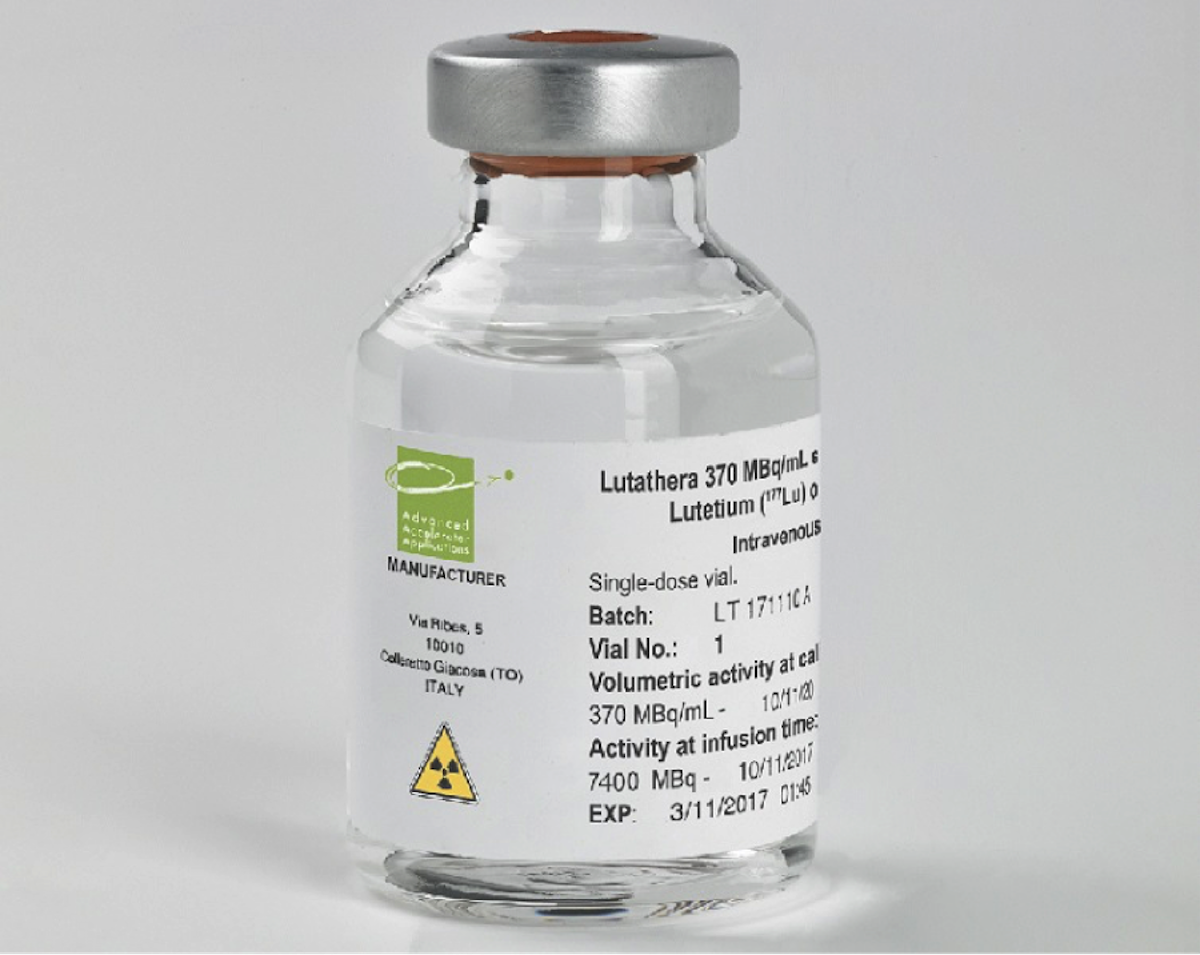Roswell Park one of the first centers to offer lutetium Lu 177 dotatate
Neuroendocrine tumors (NETs) are extremely rare and difficult to treat. Because this type of cancer grows slowly and can take years to develop, many patients do not experience any warning signs or symptoms. Surgery remains the best treatment option for NETs, but if initial therapy fails or if surgery is not possible, patients often have few treatment options.
NETs can grow in any cell that has the ability to send signals or produces hormones. These tumors can develop in several different organs, including the pancreas, lungs, liver, stomach and intestines. For patients with gastroenteropancreatic (GEP) NETs, which are tumors that grow in the pancreas and gut, a new and promising nonsurgical treatment option is now available at Roswell Park.
On January 29, the Food and Drug Administration (FDA) approved a lutetium Lu 177 dotatate (Lutathera®), a targeted radiation drug, for the treatment of GEP NETs. Lutetium Lu 177 dotatate contains a radioactive isotope (Lu-177) that binds to a specific molecule found on certain NETs called a somatostatin receptor. Once bound to these receptors, the drug delivers a lethal dose of radiation to the tumor. In this way, treatment is targeted to cancer cells, and healthy cells are spared. It is the first drug in its class to be approved by the FDA to treat this rare type of cancer.
Results from a recent clinical trial of Lutathera® (NETTER-1) are very promising. Remarkably, this treatment reduced the risk of disease progression or death by 79%. Some patients saw their tumors shrink significantly, and most reported improvements in their overall quality of life, such as weight gain. The magnitude of benefit for the patient who participated in the trial was long, extending months to years. Very few long-term or serious side effects, including bone marrow suppression and signs of mild kidney damage, were reported, suggesting that this drug is well tolerated.
Never miss another Cancer Talk blog!
Sign up to receive our monthly Cancer Talk e-newsletter.
Sign up!Overall, this targeted approach is a big step forward in the treatment of NETs. Just as the development of drugs targeting androgen or estrogen receptors led to advances in prostate and breast cancer treatment, the development of a drug that targets the somatostatin receptor is changing the way in which these digestive tract cancers are treated.
Because Roswell Park takes a multidisciplinary approach to cancer treatment, our experts will screen each patient to determine which treatment is the best option. This targeted radiation drug, which is given intravenously once every 8 weeks for a total of four doses, is a new and promising nonsurgical treatment option for GEP NETs.

